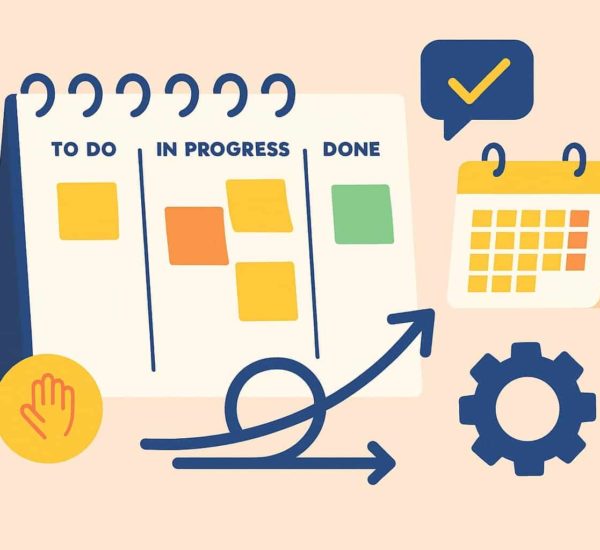How many times have we witnessed employees leaving a good company because they had to face a manager who isn’t open to listening to their problems, doesn’t welcome challenges, and doesn’t appreciate feedback or suggestions? The ratio is high, and that is why you need to have an open door policy. Simply speaking, an open door policy states keeping your ‘door’ open to your employees. It means you welcome all their suggestions, answer their queries and make things simpler for them.
When implemented correctly, an open door policy can have a host of benefits. However, if implemented poorly, it can even wreak havoc on your work routine. What you need to do is find the perfect balance between the two.
In this article, you will discover the open door policy’s meaning, the way it impacts your business, and its pros and cons. In addition, you’ll learn about the purpose it serves and a little bit about a closed-door policy.
What was the Open Door Policy?
Traditionally, an open door policy’s definition states that the manager’s door is open to their employees all the time. The idea is to provide access to the manager whenever an employee meets a significant challenge, has questions, or simply wants to discuss a problem. In other words, with an open door policy, there exists a transparent relationship between a supervisor and their subordinates, and it gets easier for employees to talk openly to them whenever they feel the need.
What was the Purpose of an Open Door Policy?
So what purpose does having an open door policy serve?
Does this policy matter?
Is an open door policy significant for your business?
Firstly, to be the manager that everyone wants to work with, you need to be transparent with your employees. Gone are the days when a manager wouldn’t be concerned with the issues outside their office. In today’s world, things work when there is a relationship of trust and transparency between the supervisor and their employees. In an open door policy, people work in complete harmony and when there isn’t a way for employees to connect to their managers, they feel left out. With no one to help or guide them, they end up being less productive.
On the other hand, when employees are free to talk to their supervisors, the communication gap reduces. When they know they can count on their managers and share everything of importance openly, they feel trusted and respected. Not only does this build their confidence, but it also encourages them to always do their best.
The purpose of an open door policy is to help bring together everyone on the team to work towards a common goal. Since employees largely determine a company’s performance, employers need to take care of their needs. For a smooth workflow and communication, employees must have a way to connect with their managers. Conversely, when employees aren’t allowed to express themselves, conflicts may arise.
Advantages of an Open Door Policy
An open door policy can benefit your business in several ways. When employers demonstrate to others their accessibility as a manager, many positive changes inside the workplace take place. Some of the advantages of an open door policy are as follows:
Accessibility
When managers are accessible to their employees, they feel more comfortable stopping by for a quick chat about any issues, feedback, and suggestions to make work better overall. It gives managers a better understanding of what happens in the workplace daily.
Improved Communication
Since the communication gap reduces, employees come to managers for all kinds of conversations. When managers begin to listen to their employees, they realize that informal discussions bring about insights about the company and other issues. With improved communication, employees are more likely to remain with the company longer.
Quick Access to Information
For businesses, it’s vital to have quick access to information. When open door managers allow employees to talk to them on the fly, a healthy creative environment is established. On the other hand, when managers keep their doors closed, they miss out on information. Even when it’s urgent, employees feel it’s best not to interrupt their manager.
Healthy Environment
With an open door policy, a healthy and encouraging environment builds. When trust is established between employees and employers, constructive discussions take place. On the other hand, in a rigid environment where employees cannot speak freely, conflicts occur.
Better Working Relationships
An open door policy promotes a culture of friendliness within the team. When the manager always welcomes employees’ queries and problems, better working relationships are built. Conversely, when the manager’s door is closed, it acts as a barrier between them and many business issues.

Sharing New Ideas
A meaningful way to get employees to share with their managers is to have an open door policy. In a chaos-free interaction, employees will be more productive and motivated to work efficiently and their fresh minds will help bring creative strategies and ideas to take your business to the next level.
Multigenerational Workforce
When people from different generations work together in harmony, problem-solving becomes multi-generational. That way, you have multiple perspectives, vast knowledge, and the ability to solve various problems.
Reduced Employee Turnover
Let’s be honest. Employee turnover is something that no employer likes. When every employee fully gets to express themselves, a happy and healthy environment builds. Employees working in such a positive work environment are less likely to leave the business.
Disadvantages of an Open Door Policy
While there are benefits of having an open door policy, there are a few limitations too.
Dependency on Managers
It is clear that when employees knock on their managers’ door for every little matter, they become dependent on them for even those issues they can solve themselves. They make a habit out of seeing their supervisor first before trying to fix things on their own.
Increased Workload on Management
When employees fall out of the habit of dealing with things independently, they come to see their supervisor for every sort of issue. When this happens, it leaves managers with an unrealistic burden of work. Solving their problems and, on top of that, their employees’ issues, they even miss out on essential tasks or deadlines.
Reduced Productivity in Managers
Again, with an increased workload on the management, productivity is bound to be reduced. Managers end up always being exhausted and less motivated.
Context Switching
Every time managers are interrupted by an employee it might take them several minutes to get back to what they were doing. This is expensive and can be detrimental to their quality of work.
Favoritism within the Workplace
When managers are more available to some employees than others, a sense of favoritism develops within the team. In this case, the other employees may feel frustrated and less motivated.
Managers become Therapists
Employees come with their problems and pour their hearts out about work issues or even personal concerns. When this happens, managers may end up being therapists for them, which is not a manager’s job.
Examples of an Open Door Policy
So what are some open door policy examples?
An open door policy means you are there for your employees to:
- Ask guidance
- Report mismanagement
- Complain
- Ask questions
- Share ideas
- Make suggestions about work
- Share general or specific feedback
Open Door Policy Sample
HRs can consider having the following points in their open door policy or think of it as an open door policy example:
- Managers and employees both need to be compassionate about each other’s issues.
- Both parties need to be responsible in terms of adjusting time for each other.
- Both should try solving problems as quickly as they can, taking care of the time.
- If something is urgent and can’t wait for an appointment, the concerned person should be informed on call.
Ways to Communicate Effectively:
- First of all, having an agenda is important. Before going to see your supervisor, consider the above-mentioned points. In today’s world, scheduling a meeting sounds like a suitable suggestion for both parties.
- However, if an issue requires more than one session, managers should block time on their calendar and see the respective person during that.
- Be more solution-oriented. Both parties should focus on ending the problem as soon as they can.
- Practice empathy
- Value your time
- Respect every individual’s privacy in the workplace.

Who Should you Contact?
In terms of the company hierarchy, different managers deal with different problems. Taking this into account will save everyone’s time.
- If you have a general issue regarding the workplace or a colleague, see your reporting manager.
- If the issue concerns a senior member of the team, see HR directly. This will protect your privacy.
- If the matter is simple and can be resolved in a short time, contact your immediate manager.
Walmart Policy
Walmart’s open door policy is a good example. Their open door policy states that every time an employee faces an issue, they can see a qualified person from the management and discuss their matter face-to-face. They have a strict code of ethics that addresses many issues, including filing general problems and harassment complaints. Walmart has three basic rules for their employees:
- Respect to all individuals
- Service to the customers
- Striving for excellence
Closed Door Policy
A closed-door policy is one in which managers don’t allow their employees to come to them. When they don’t give their employees that liberty, different negative situations may arise in the workplace.
Burnout
When there’s no way for employees to speak to management, they feel burnt out.
Conflicts Arise
With no one around to guide employees, they keep complaining about the management within the team, giving rise to disputes. When you slam your metaphorical door shut, all the time, your employees may think you’re uninterested in their careers.
Ways to Implement an Open Door Policy in a Balanced Way at Work
While having an open door policy has its pros and cons, a closed-door policy has its own set too. The key to having a successful business is to explicitly create and communicate every policy. Here’s what you can do instead of completely shutting your door on your employees while being there for them at the same time:
Set Boundaries
Setting boundaries is the main thing on which managers should focus. Keep a fixed time when employees can see you. When managers do this, they will not get distracted or interrupted in the middle of something important.
Secondly, managers can fix sessions with their employees in their calendars during which they can discuss their issues.
Consider ‘Half-Open Door’
Consider the half-door policy in place of an open or closed-door policy. In this case, an employee first tries to solve the problem using their own instincts and only then comes to their manager.
Listen More
Listen keenly to your employees and keep your opinion to yourself until they finish talking. Never ignore an employee’s frustration because a serious issue could be behind it.
Encourage your Employees
While you’re at it, encourage your employees to solve their problems independently. Train them and help them learn the basics of decision-making so that they come to see you as little as possible.
Keep Track of your Time
Time is precious. Be mindful of where your time goes when you’re solving the problems of others. Interruptions now and then can take a good part of a manager’s work time and make them less productive. The key is to set a fixed time for such matters.
Act Quick
The whole point of having an open door policy is to encourage your employees to talk to you about small matters so that they don’t become big. Therefore, you must act quickly and prevent them from becoming considerable problems in the future.
The Takeaway on the Open Door Policy
Corporate culture is rapidly evolving. Most companies prefer having an open door policy and want transparency. The bottom line is that it is up to you to decide which approach suits your organization.






